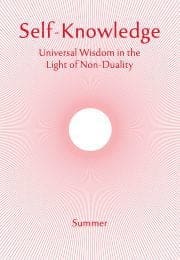The Non-dual Contribution to Psychology, Philosophy and Religion
When we reflect on the non-dual teachings, we may wonder whether they are best described as a philosophy or a religion, or neither, or both. Also, we find that the teachings stress the pivotal role of our mind, and they transmit to us a wealth of psychological insights. So we have at least three fields of human interest that are embraced and elucidated by the non-dual teaching: psychology, philosophy and religion.
We also have a clear sense that to label these teachings is inadequate and misleading. What we can do is to point to a vital dimension that Advaita Vedanta provides that is perhaps lacking in many expressions of psychology, philosophy and religion as ordinarily understood.
Psychology attempts to examine and explain the nature of the human mind and its faculties, functions and qualities. Advaita Vedanta also discusses the range and limitations of the mind. But this is not a matter of merely academic interest or debate. The Vedanta concern with mental states is goal-orientated. It is dynamic and transformative. The only reason for showing an interest in the mind and its workings is to help us to control and purify this organ of experience, with a view to transcending its influence completely. The crucial insight is that the true Self is not the mind, and only seems to be so through error or delusion.
Therefore, when we are encouraged to get to know the mind and its ways, it is always with the aim of going beyond the mind. In the Amrita Bindu Upanishad, for example, we find the clear statement that ‘the mind is the cause of bondage and also the cause of liberation’—if the mind is guided and transformed wisely. Another teaching of psychological acuteness is that of the three gunas. This doctrine is developed purely to encourage us to make inner progress. We are urged to overcome the inertia of tamas and the passion-struggle of rajas, and establish our mind in the benevolent serenity of sattva. But this upgrading of our mental atmosphere is not for its own sake. It is an aid to our deepening self-knowledge, as are all the other insights of a psychological nature found in these teachings.
Subscribe or enrol for free guest access to read all of this article and Self-Knowledge online.
Already subscribed or enrolled? Log in:


